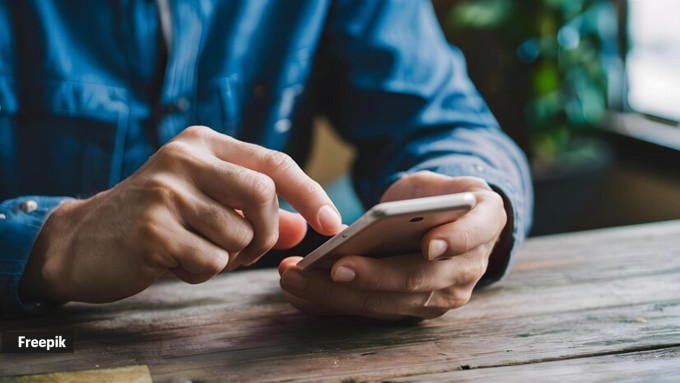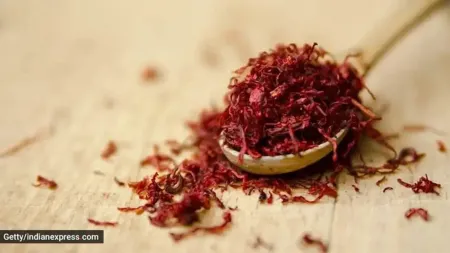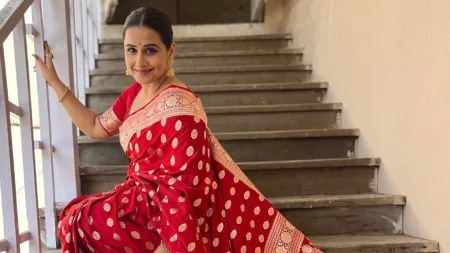Love shouldn’t hurt: How LGBTQ+ members navigate violence and abuse in modern dating
A few swipes to the left, fewer to the right, and bam! You have got a date!
In this era of swipes and tech-enabled ‘instant’ connections, the journey of love for the members of the LGBTQ+ community is replete with unique risks and challenges. Conversations around their rights have gained momentum, especially after the Supreme Court of India, in 2018, struck down Section 377, decriminalising same-sex relationships between consenting adults, but the prevalence of violence and abuse within the community, especially while navigating the modern dating scene, remains largely unexplored, underserved, and often, unspoken.

Navigating dating apps
Rajiv Dua, chief executive at Alliance India––a non-governmental organisation (NGO) that supports sustained responses to protect rights and improve health of HIV-affected individuals in India––has over three decades of experience in public health. He has come across many LGBTQ+ persons who have been at the receiving end of abuse in romantic relationships.
“Dating has become even more unsafe after dating apps came into the picture,” Dua told indianexpress.com. What’s surprising is that as part of the community himself, Dua has first-hand experience of being abused too.
There has been a sharp increase in cases of violence with the advent of online dating apps, he adds. It ranges from threats and money extortion to more conspicuous forms of violence including beating and sexual assault.
Gautam Yadav, program officer for Community Strengthening at Alliance India, said, ”False identities on dating apps breed a culture of deceit. The absence of verification policies exposes us to risks ranging from robbery to physical assault.”
Naaz Joshi, a trans rights activist and motivational speaker, is also of the opinion that online dating platforms like Grindr are not safe. Reflecting on her own experiences, Joshi said the issue of dating violence is very serious “because most of these violence within the community go unreported”.
Psychological effects of dating violence
Shatavisha Majumdar, consultant clinical psychologist at Mind Talk, elaborated on the immense psychological effects of dating violence. Majumdar told indianexpress.com that LGBTQ+ individuals who experience dating violence may develop trauma symptoms including flashbacks, nightmares, and hypervigilance; low self-esteem and self-blame; depression and anxiety; isolation and loneliness; suicidal ideation and self-harm; difficulty trusting others; and unhealthy coping mechanisms like substance abuse.
Amrita Sarkar, a transgender woman, who serves as an advisor for transgender wellbeing and advocacy at Alliance India, drew attention to the mental health toll of transient interactions. As a transgender woman herself, she said she looks for love which she could never receive as a child.
The modern-day disposable encounters leave individuals isolated and vulnerable according to Sarkar. “This digital disconnect contributes to widespread depression within our community,” she said. “Younger generations lack guidance,” Sarkar admitted. “Misinformation fuels risky behaviours, perpetuating misunderstanding,” she said.
 With the advent of online dating apps, there has been a sharp increase in cases of violence. (Source: Freepik)
With the advent of online dating apps, there has been a sharp increase in cases of violence. (Source: Freepik)
Discrimination within the community
Dua stressed on how discrimination within the LGBTQ+ community based on caste, economic status, and health among other factors contributed to the rise in dating violence. “The most common form of abuse coming from within the community is in the form of body shaming and ageism. People also discriminate based on which region of the country others belong to. Violence need not be in the form of physical violence,” Dua told indianexpress.com.
Aayush Agrawal, founder and CEO of Pride+ App, which is designed to empower and uplift the LGBTQ+ community, agreed with Dua. “The intersectionality of identities within the LGBTQ+ community further exacerbates the challenges. For example, LGBTQ+ individuals of colour, transgender individuals, and those with disabilities may face compounded discrimination and barriers to accessing support services,” Agrawal said.
“We must destigmatise alternative sexualities and remove shame associated with becoming a victim to such violence,” urged Shamaine Rebello, public relations strategist and a part of the LGBTQ+ community.
Key to a better, safer future: Education and awareness
Education is commonly seen as a catalyst for change. “Teach adolescents in school about healthy dating practices. Talk about respect and abuse in school itself to help everyone understand what violence is and what healthy dating looks like,” Rebello said.
Raval and Yadav also emphasised on the urgency of good parenting practices, early education in schools as well as accepting and normalising diverse sexualities. However, Yadav wanted youngsters to not make their sexuality their entire identity. “Our sexuality is just one facet of who we are,” he said.
Majumdar is of the opinion that participating in workshops, accessing educational resources about healthy relationships, consent, and LGBTQ+ rights as well as seeking counselling or therapy from qualified mental health professionals can empower individuals to recognise and address dating violence.
Yadav argued the wider society needed to become more aware as well. Dua, too, highlighted persistent discrimination despite legal reforms, emphasising the need for official awareness.
Yadav shared how ignorant even police officials are with respect to the LGBTQ+ community. “If I go to police officials’ training, I need to talk about sexuality; and when I ask them questions, their knowledge is zero, which is shocking,” Yadav described his experience. This is despite the Supreme Court of India categorically mentioning that the Section 377 judgments should go to each and every police station in the country to ensure more awareness and thereby reduce violence and discrimination.
Lack of genuine connections
Nehal Raval, a gay man who oversees NETREACH project for Alliance India, which utilises virtual platforms for HIV/STI prevention, spoke of the paradox of desire and assumption in LGBTQ+ dating. “Online interactions often reduce us to mere sexual preferences. Yet, beneath this surface, we yearn for authentic connections that transcend physicality,” Raval said.
“There was depth in our meetings, beyond the hunt for immediate gratification,” Yadav said, recalling a time when relationships bloomed organically in public spaces. “Now, digital encounters prioritise fleeting desires over genuine connection,” he said.
In the quest for authentic connections, many innocent people are facing trauma and, in worse cases, death, due to the nature of crimes that are committed in dating.
This, however, does not mean all hope is lost.
There are voices such as the ones here, putting their best efforts to guide those who have lost direction. As the LGBTQ+ community navigates the complexities of digital dating, only time will tell if these voices will be loud enough to redefine love and forge a path towards a safer future where every heart finds its true connection.
Disclaimer: The copyright of this article belongs to the original author. Reposting this article is solely for the purpose of information dissemination and does not constitute any investment advice. If there is any infringement, please contact us immediately. We will make corrections or deletions as necessary. Thank you.





